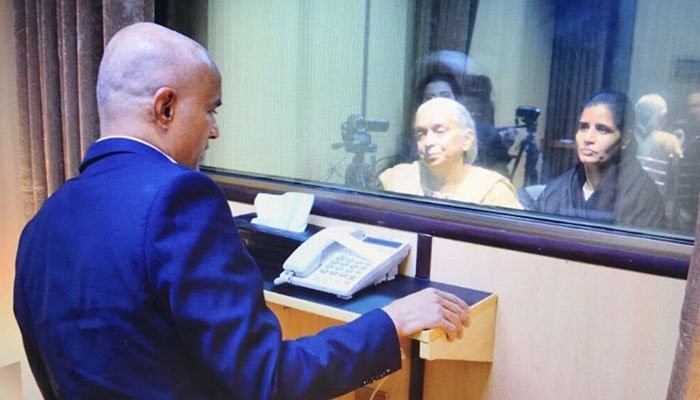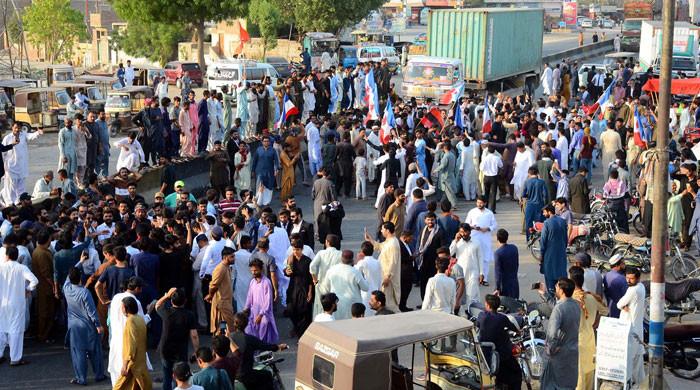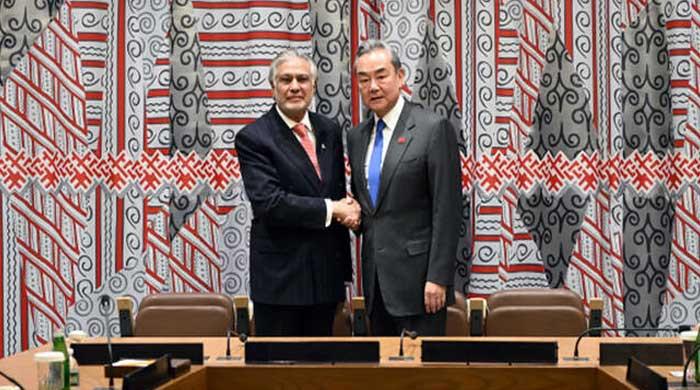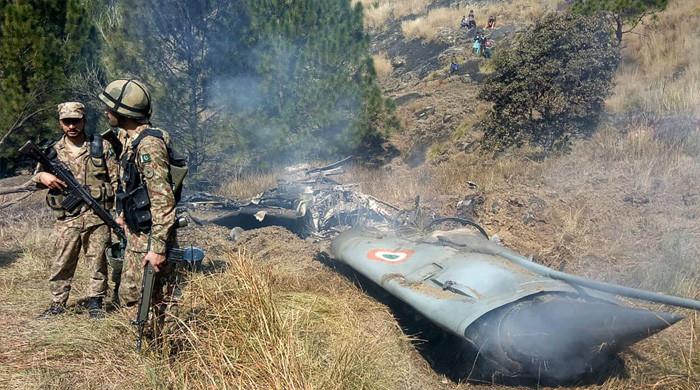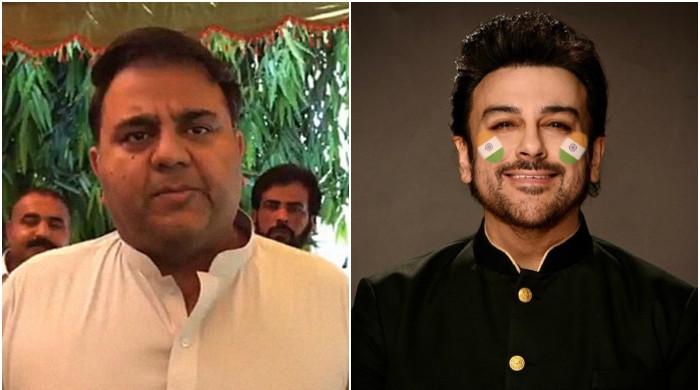Jadhav fears family was 'beaten all along in the plane' from India
Pakistan Foreign Office releases another video statement from Jadhav
January 04, 2018
ISLAMABAD: The Pakistani Foreign Office on Thursday released a video statement of Indian spy Kulbhushan Jadhav in which he speaks about meeting his mother and wife.
In a goodwill gesture, Pakistan had allowed the convicted spy to meet his mother and wife at the Ministry of Foreign Affairs on 25 December.
The video begins with Jadhav sharing a message for the Indian public and government. “I have to say one thing very important here, for the Indian public, Indian government and the Indian navy, that my commission is not gone. I am a commissioned officer in the Indian navy,” he re-asserts.
About the meeting, Jadhav stresses that he saw fear in the eyes of his mother and wife and it seemed they had been brought there under threat. He also points out seeing an Indian diplomat yelling at his mother following the meeting.
“I saw fear in the eyes of my mother and my wife. Why should there be fear? Whatever has happened has happened. There shouldn’t be fear in the eyes of my mother and my wife. They’ve been threatened. The Indian diplomat or the Indian person who had come along with my mother was shouting on [sic] my mother the moment she stepped out [of the meeting room]… he was yelling at her. Has she been brought under threat here, to meet me? This gesture was a positive gesture so that she feels happy, I feel happy… and then the Indian diplomat or some person standing outside yelling at her?”
Admitting that he had been working for Indian spy agency RAW, Jadhav said that his mother and wife had been really battered, troubled and brought to the meeting. “I have thought they have been beaten all along in the plane.”
He added that the treatment of his family was not a pleasant thing. “My mother went under shock. She is saying no this can’t be said and what is this. I am really thankful of the whole process of both the governments - the Indian government and the Pakistani government. I am really feeling sad that my mother was in a bad threatened position.”
The meeting between Jadhav and his mother and wife, held on December 25 as a humanitarian gesture, lasted almost 40 minutes, the Pakistan Foreign Office said. Indian diplomats, including Deputy High Commissioner JP Singh, accompanied Jadhav's family and were present during the meeting, which was conducted in a specially prepared room via an intercom through a glass partition.
India, however, claimed later that Pakistan did not adhere to the conditions of the meeting between Jadhav and his family.
Speaking in the Rajya Sabha, Indian External Affairs Minister Sushma Swaraj alleged that the meeting was used by Pakistan for propaganda and that his family was harassed.
ICJ proceedings
On April 10, 2017, Pakistan sentenced RAW agent Kulbhushan Jadhav to death for carrying out espionage and sabotage activities in Balochistan and Karachi.
In a reaction to the move, Pakistan’s relations with neighbouring India tensed, and New Delhi approached the ICJ to hear the case.
On May 18, the ICJ ordered Pakistan to halt the execution of Jadhav until a final decision was made in the proceedings.
India then moved the ICJ to give it six months to file pleadings in the case, which the United Nations’ judicial organ had turned down in June this year. Later, New Delhi submitted its memorial (arguments) to the ICJ on September 13.
On December 13, Pakistan submitted its reply to the ICJ, dismissing India's stance in the case of the convicted spy.
In its counter-memorial, Pakistan stated that Jadhav is not an ordinary person as he had entered the country with the intent of spying and carrying out sabotage activities.
The reply also stated that Jadhav, who was a serving officer of the Indian Navy, does not fall under the purview of the Vienna Convention.
The case remains sub judice.
Arrest, confession, sentencing
Jadhav alias Hussein Mubarak Patel, was arrested on March 3, 2016 in a ‘counter-intelligence operation’ from Mashkel area of Balochistan for his involvement in espionage and sabotage activities in Pakistan.
The incarcerated RAW agent, in his video statement, confessed to involvement in sabotage and espionage inside Pakistan, which has also been the crux of Islamabad’s case in the ICJ.
On April 10, a Field General Court Martial — under the Pakistan Army Act, 1952, and Official Secrets Act, 1923 — awarded death sentence to Jadhav for espionage and sabotage.
Army Chief General Qamar Javed Bajwa ratified the sentencing by the army tribunal.
Jadhav has since been on the death row.
